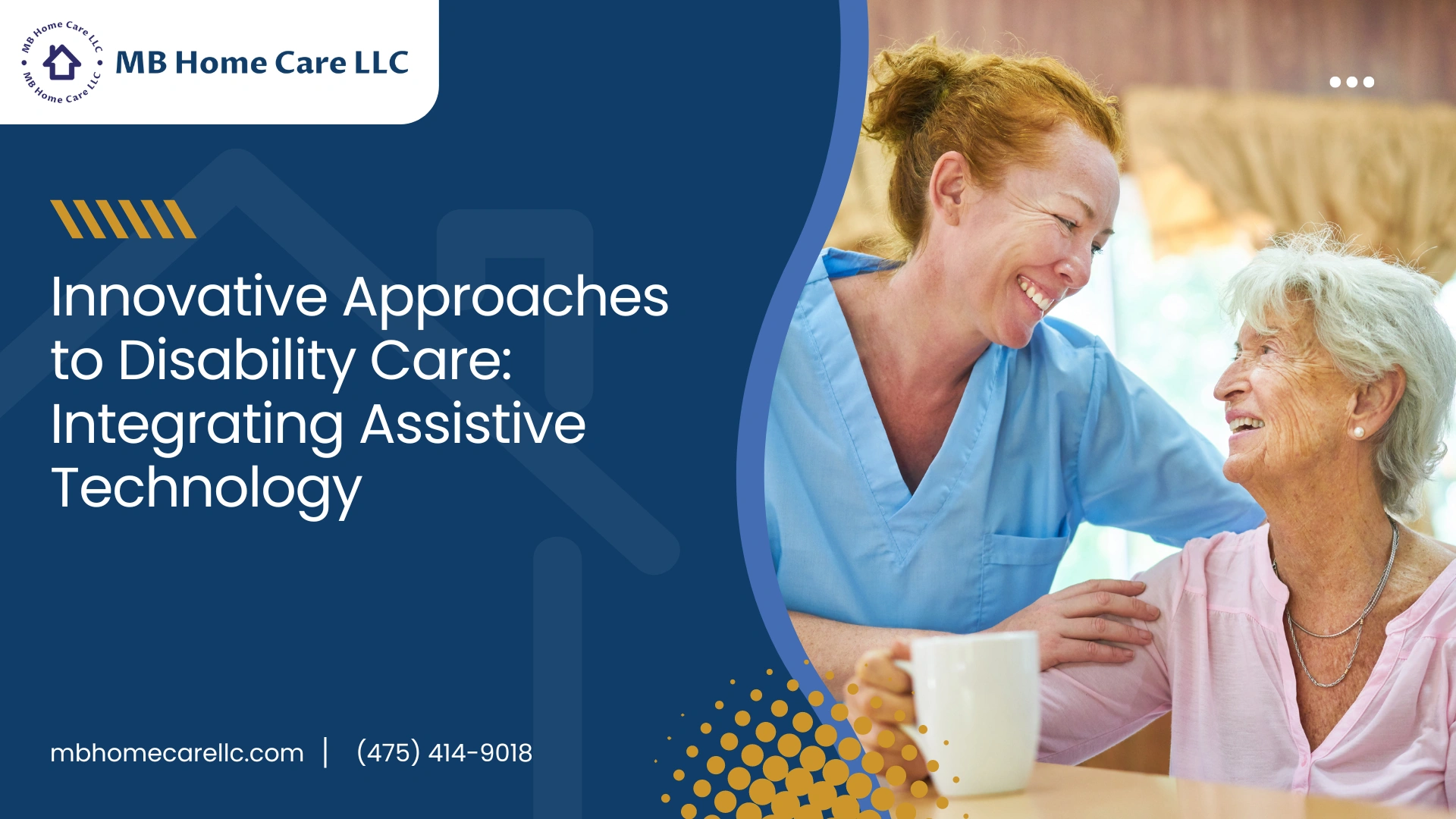The integration of assistive technology in disability care is transforming the way support is provided to individuals with disabilities. These innovative approaches enhance mobility, communication, and overall quality of life, ensuring that each person receives comprehensive and personalized care.
Understanding Assistive Technology in Disability Care
What is Assistive Technology?
Assistive technology refers to devices and systems designed to support individuals with disabilities in performing daily activities. These technologies range from simple tools to advanced systems that improve mobility, communication, and independence.
Mobility Support
Mobility support is a critical component of assistive technology in disability care. Devices such as wheelchairs, walkers, and mobility scooters help individuals move around safely and independently. Advanced technologies, including robotic exoskeletons and smart canes, further enhance mobility and support.
Communication Assistance
Communication is vital for individuals with speech or hearing challenges. Assistive technology includes devices like speech-generating devices, hearing aids, and communication apps. These tools enable individuals to express themselves and engage in meaningful interactions.
Personalized Care Plans
Integrating assistive technology into personalized care plans ensures that each individual’s unique needs are addressed. Caregivers work with healthcare professionals to incorporate these technologies into daily routines, enhancing the effectiveness of care.
Benefits of Assistive Technology
Enhanced Independence
Assistive technology empowers individuals with disabilities to perform daily activities independently. Mobility devices, communication tools, and smart home systems enable people to live more autonomously, improving their quality of life.
Improved Communication
Communication devices and apps facilitate effective interaction, allowing individuals to express their needs and preferences. This enhances social engagement and reduces feelings of isolation and frustration.
Increased Safety
Safety is a significant concern for individuals with disabilities. Assistive technology includes features such as emergency alert systems, fall detection, and GPS tracking, ensuring that help is readily available when needed.
Examples of Assistive Technology
Wearable Devices
Wearable devices, such as smartwatches and fitness trackers, provide valuable health data and support daily activities. These devices can monitor vital signs, track physical activity, and send alerts in case of emergencies.
Smart Home Integration
Smart home technologies, such as voice-activated assistants and automated lighting, enhance the safety and comfort of individuals with disabilities. These systems support independence while ensuring a secure environment.
Robotic Assistance
Robotic devices, such as robotic exoskeletons and robotic arms, provide physical support and enhance mobility. These technologies assist with tasks that require strength and precision, improving the individual’s ability to perform daily activities.
The Future of Assistive Technology
AI-Powered Solutions
The future of assistive technology lies in AI-powered solutions. AI can analyze health data, predict needs, and provide real-time support. These advanced systems will further enhance the effectiveness of disability care.
Increased Accessibility
As technology continues to advance, assistive devices will become more accessible and affordable. This increased accessibility ensures that more individuals with disabilities can benefit from these innovative solutions.
Integration with Healthcare
The integration of assistive technology with healthcare systems will streamline care processes and improve outcomes. Coordinated care plans that incorporate technology will provide comprehensive support and enhance overall well-being.
Why Choose MB Homecare LLC?
At MB Homecare LLC, we are dedicated to integrating assistive technology into our specialized disability care services. Our team of caregivers is trained to utilize these technologies to provide the highest level of support. Located in Northford, CT, we are committed to enhancing the lives of those we serve.
Conclusion
Assistive technology is revolutionizing disability care by enhancing mobility, communication, and independence. These innovative approaches ensure that individuals with disabilities receive comprehensive and personalized support. At MB Homecare LLC, we are dedicated to providing high-quality care that integrates the latest technologies. For more information, visit our Google business profile.

